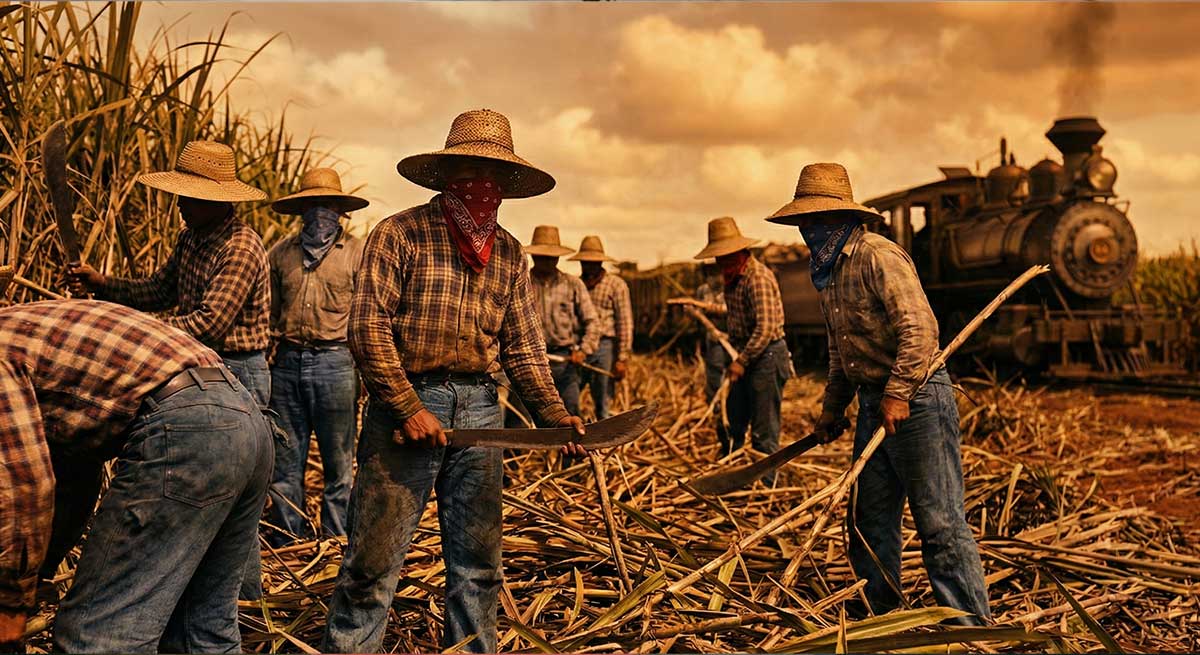
Da Evolution of Efficiency: How Hawaiian Pidgin Wen Streamline Communication
Language constantly adapts to meet the practical needs of its speakers. In Hawaiʻi, this evolution created Hawaiian Pidgin (Hawaiʻi Creole English), a highly streamlined and efficient form of communication shaped by a diverse linguistic landscape.

The Plantation Origins
Pidgin emerged on 19th-century Hawaiian sugar plantations, where laborers from varied linguistic backgrounds—including Chinese, Japanese, Portuguese, Filipino, and Native Hawaiian—required a common language to interact. The plantation environment mandated efficiency. Surrounded by noisy machinery and the constant need for urgent safety communication, workers prioritized speed and clarity over formal grammar. Pidgin stripped away unnecessary linguistic complexities to function effectively across language barriers.
The Architecture of Simplification
This drive for efficiency is evident in the language's phonetic shifts and structural simplification. A clear example is the transformation of the English word "brother." The initial shift to "braddah" eliminated complex consonant clusters, a standard feature in creole development. The subsequent shortening to "brah" further reduced the required vowel sounds, minimizing the effort needed for pronunciation.
This pattern applies to core grammatical functions as well. "The" became "da," avoiding easily confused consonant sounds. Tense markers were streamlined, with "was" shifting to "wen" for past tense, and variations of "stay" replacing the complex conjugations of the English verb "to be." These modifications ensured clarity amidst the diverse pronunciations on the plantations.

Context Over Complexity
Pidgin's evolution reflects a highly pragmatic approach to conveying meaning. Rather than relying on rigid sentence structures, the language utilizes context-heavy vocabulary. Terms like "da kine" (that kind or that thing) and "bumbye" (later or eventually) function as versatile contextual tools. They encompass broad concepts and can replace entire standard English sentences, allowing speakers to communicate complex thoughts with minimal linguistic effort.

Cataloging a Living Language
Hawaiian Pidgin is a dynamic force that continues to grow alongside its speakers. It is an actively expanding vocabulary rather than a historical artifact. The Da Pidgin digital dictionary has currently documented over 750 distinct entries, illustrating the breadth and ongoing evolution of the language in modern daily life.
Beyond "Broken" English
While historically stigmatized as a simplified or "broken" form of English, the evolution of Hawaiian Pidgin demonstrates remarkable linguistic ingenuity. It is a language born of strict necessity, optimized to convey essential information with minimal complexity. Today, it remains a highly effective communication tool and an integral part of Hawaiʻi's cultural identity.
Original archival photos courtesy of the Library of Congress. Colorized and enhanced.
